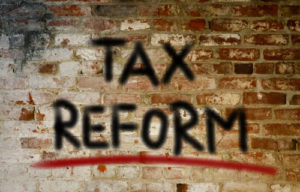Business Plan Basics
[vc_row][vc_column][vc_column_text]
Business Plan Basics
A business plan precisely defines your business, identifies your goals, and serves as your firm’s resume. The basic components include a current and pro forma balance sheet, an income statement, and a cash flow analysis. It helps you allocate resources properly, handle unforeseen complications, and make good business decisions. Because it provides specific and organized information about your company and how you will repay borrowed money, a good business plan is a crucial part of any loan application. Additionally, it informs sales personnel, suppliers, and others about your operations and goals.
Plan Your Work
The importance of a comprehensive, thoughtful business plan cannot be overemphasized. Much hinges on it: outside funding, credit from suppliers, management of your operation and finances, promotion and marketing of your business, and achievement of your goals and objectives.
“The business plan is a necessity. If the person who wants to start a small business can’t put a business plan together, he or she is in trouble,” says Robert Krummer, Jr., chairman of First Business Bank in Los Angeles.
Despite the critical importance of a business plan, many entrepreneurs drag their feet when it comes to preparing a written document. They argue that their marketplace changes too fast for a business plan to be useful or that they just don’t have enough time. But just as a builder won’t begin construction without a blueprint, eager business owners shouldn’t rush into new ventures without a business plan.
Before you begin writing your business plan, consider four core questions:
- What service or product does your business provide and what needs does it fill?
- Who are the potential customers for your product or service and why will they purchase it from you?
- How will you reach your potential customers?
- Where will you get the financial resources to start your business?
Writing the Plan
What goes in a business plan? The body can be divided into four distinct sections:
1) Description of the business
2) Marketing
3) Finances
4) Management
Addenda should include an executive summary, supporting documents, and financial projections. Although there is no single formula for developing a business plan, some elements are common to all business plans. They are summarized in the following outline:
Elements of a Business Plan
- Cover Sheet
- Statement of Purpose
- Table of contentsI. The Business
A. Description of business
B. Marketing
C. Competition
D. Operating procedures
E. Personnel
F. Business InsuranceII. Financial Data
A. Loan applications
B. Capital equipment and supply list
C. Balance sheet
D. Breakeven analysis
E. Pro-forma income projections (profit & loss statements)
Three-year summary
Detail by month, first year
Detail by quarters, second and third years
Assumptions upon which projections were based
F. Pro-forma cash flowIII. Supporting Documents
Tax returns of principals for last three years.
Personal financial statement (all banks have these forms)
For franchised businesses, a copy of franchise contract and all supporting documents provided by franchisor.
Copy of proposed lease or purchase agreement for building space.
Copy of licenses and other legal documents
Copy of resumes of all principals
Copies of letters of intent from suppliers, etc.
One of the best ways to learn about writing a business plan is to study the plans of established businesses in your industry.
Using the Plan
A business plan is a tool with three basic purposes: communication, management, and planning.
As a communication tool, it is used to attract investment capital, secure loans, convince workers to hire on, and assist in attracting strategic business partners. The development of a comprehensive business plan shows whether or not a business has the potential to make a profit. It requires a realistic look at almost every phase of business and allows you to show that you have worked out all the problems and decided on potential alternatives before actually launching your business.
As a management tool, the business plan helps you track, monitor and evaluate your progress. The business plan is a living document that you will modify as you gain knowledge and experience. By using your business plan to establish timelines and milestones, you can gauge your progress and compare your projections to actual accomplishments.
As a planning tool, the business plan guides you through the various phases of your business. A thoughtful plan will help identify roadblocks and obstacles so that you can avoid them and establish alternatives. Many business owners share their business plans with their employees to foster a broader understanding of where the business is going.[/vc_column_text][/vc_column][/vc_row]
Is Cryptocurrency Really Secure?
Is Cryptocurrency Really Secure? If you’ve been following the cryptocurrency market then no doubt you’re aware of the volatility of this digital currency. You’ve already seen the massive swings that Bitcoin, Ripple and others have taken over the past several months. Although the big jumps and crashes have made most of the cryptocurrency headlines. There…
How Will New Tax Reform Affect Divorce in the Coming Year?
How Will New Tax Reform Affect Divorce in the Coming Year? No one plans on getting divorced when they decide to tie the knot. Love will conquer all, right? Unfortunately, that’s not how things work and about half of all marriages still end in divorce. Divorce is almost never pleasant and any couple that decides…
Tax Reform Brings New Changes to Section 1202
Tax Reform Brings New Changes to Section 1202 Tax reform is here, love it or hate it. So, with the New Year here that means it’s time to start working under different tax law. To be clear, the 2017 tax year, for which you will file a return this year, is not affected by the…
The Best Cruises for Non-Cruisers
The Best Cruises for Non-Cruisers Have you been on a good cruise lately? For some travelers, nothing beats a cruise. You get to relax on a floating resort with access to unlimited food, drinks and recreation without a care in the world. For some this is the definition of heaven. However, cruises aren’t exactly for…




